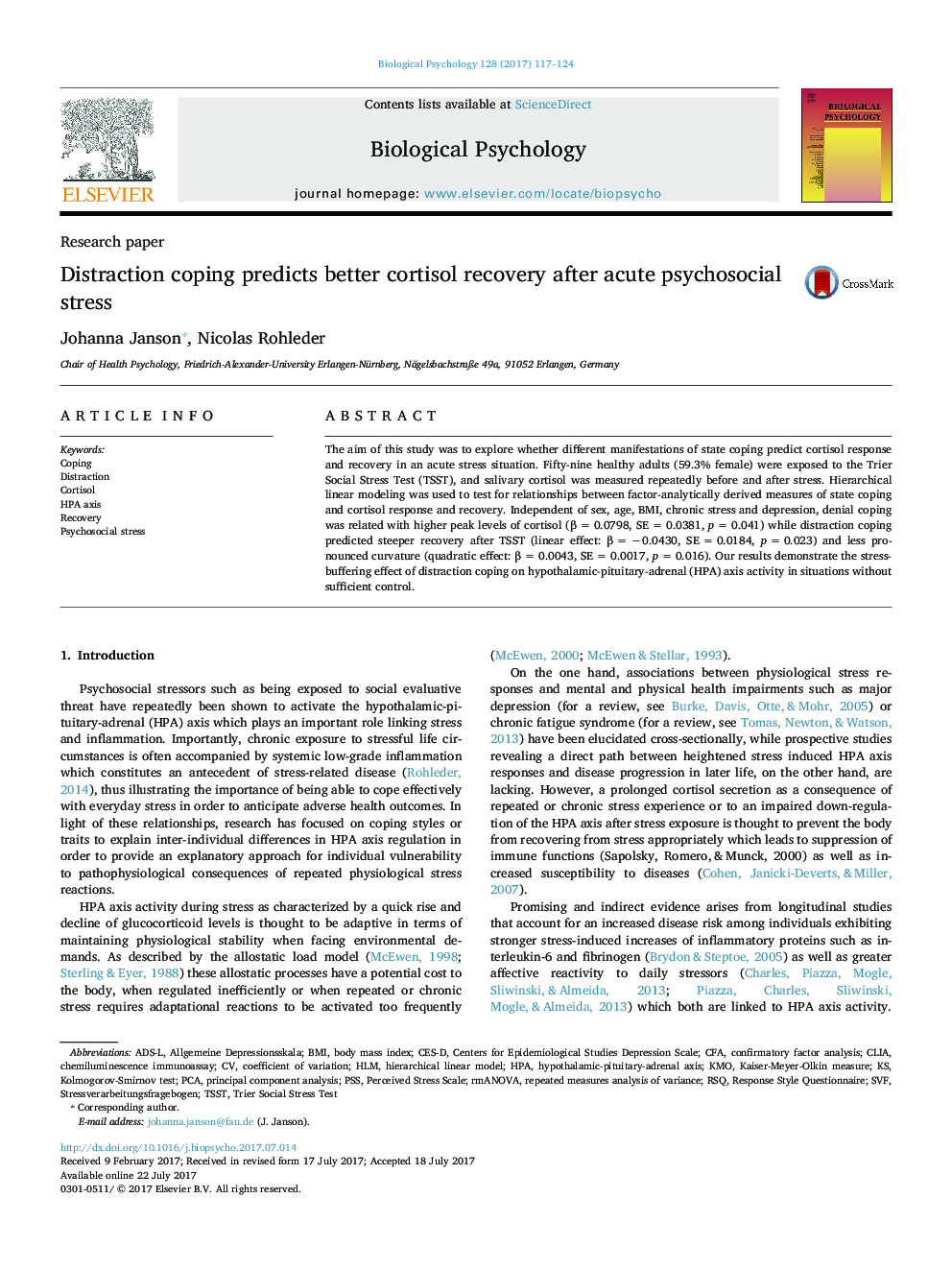| کد مقاله | کد نشریه | سال انتشار | مقاله انگلیسی | نسخه تمام متن |
|---|---|---|---|---|
| 5040388 | 1473846 | 2017 | 8 صفحه PDF | دانلود رایگان |
- Efficiency of state coping measures was assessed in healthy young adults.
- Coping responses explained variation in HPA axis activity differently.
- Denial coping was associated with higher peak levels of salivary cortisol.
- Distraction coping predicted steeper and straighter cortisol decline.
The aim of this study was to explore whether different manifestations of state coping predict cortisol response and recovery in an acute stress situation. Fifty-nine healthy adults (59.3% female) were exposed to the Trier Social Stress Test (TSST), and salivary cortisol was measured repeatedly before and after stress. Hierarchical linear modeling was used to test for relationships between factor-analytically derived measures of state coping and cortisol response and recovery. Independent of sex, age, BMI, chronic stress and depression, denial coping was related with higher peak levels of cortisol (β = 0.0798, SE = 0.0381, p = 0.041) while distraction coping predicted steeper recovery after TSST (linear effect: β = â0.0430, SE = 0.0184, p = 0.023) and less pronounced curvature (quadratic effect: β = 0.0043, SE = 0.0017, p = 0.016). Our results demonstrate the stress-buffering effect of distraction coping on hypothalamic-pituitary-adrenal (HPA) axis activity in situations without sufficient control.
Journal: Biological Psychology - Volume 128, September 2017, Pages 117-124
